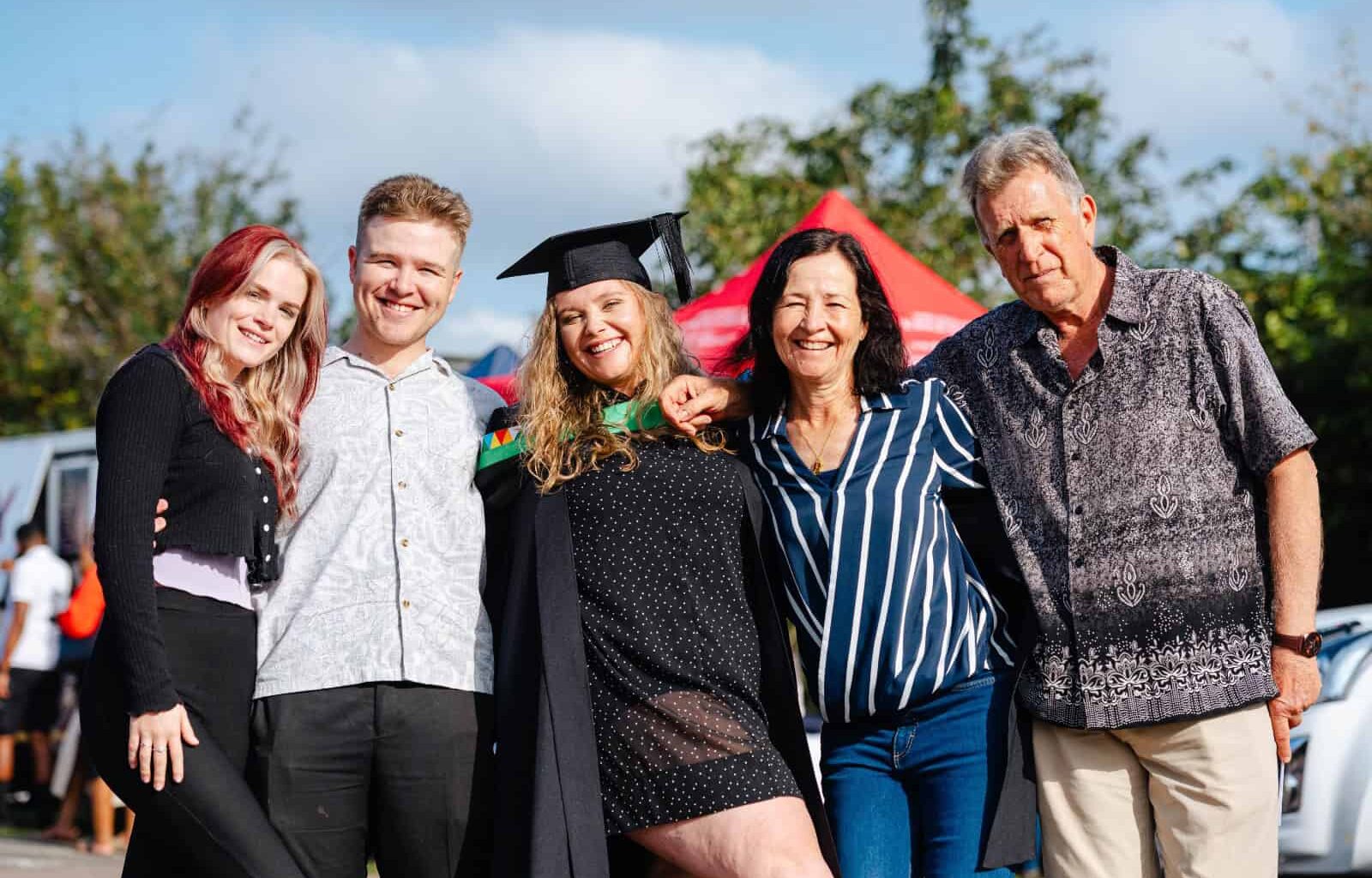A UKZN genetics graduate, who enjoys spending time outdoors with her animals, volunteering with the Kloof and Highway SPCA, and relaxing with family and friends, is championing South Africa’s indigenous horse breeds.
Research into the genetic diversity of South African indigenous and rural horse breeds secured UKZN’s Erin Frost an MSc degree in Genetics.
Supervised by Dr Edgar Farai Dzomba, Frost’s work puts a spotlight on an under-researched yet culturally and economically important aspect of South Africa’s biodiversity.
A UKZN student through and through, Frost has been part of the institution since the start of her academic journey. “From bachelors and honours to master’s studies, I have had the privilege of being taught by passionate and inspiring lecturers who have always advocated for the advancement of knowledge and specialisation within postgraduate research work. How could I not choose UKZN?”
Her research focused on characterising the genetic and functional diversity of rural and indigenous horse breed populations in South Africa, while also generating essential data to address threats such as extinction, uncontrolled crossbreeding and replacement by exotic breeds.
“South Africa is home to a wide range of indigenous and rural horse breeds that play critical roles in both commercial breeding systems and smallholder farming communities,” Frost explained. “The history of these populations is well documented, beginning with the introduction of Javanese war-horses by Dutch settlers, which laid the foundation for the Cape Horse through subsequent crossbreeding with diverse equine stock.
“The development of modern South African horse populations reflects a legacy of human management, natural selection and adaptability.”
Despite their cultural and economic importance, genomic studies of indigenous breeds such as the Basotho pony and non-descript rural horse populations remain scarce. Frost’s research therefore provides pivotal insights into their genetic diversity, multifunctional roles and adaptive traits.
Also read: Star College girls’ team looks forward to major tourney
By incorporating a community-driven approach, the study highlights how these horses continue to meet the evolving needs of rural farmers and commercial sectors alike. “Their resilience and versatility secure their significance not only within South African history but also in contemporary society,” she said.
Her passion for horses is lifelong. “I have been fortunate enough to grow up surrounded by horses, which has developed my affinity and passion towards their existence and propagated my keen interest to research them,” said Frost.
It was during her honours year at UKZN that her academic interest in equine genetics crystallised. “I chose to focus my mock presentation on identifying potential deleterious alleles associated with Chronic Obstructive Pulmonary Disease (COPD) in larger draft horse breeds, a topic that resonated with me personally as my own horse suffers from this condition.”
This passion did not go unnoticed. Dzomba recognised her strong interest in equine genetics and suggested she pursue MSc research focusing on South African horse breeds. “This opportunity allowed me to undertake a novel research project exploring the genetic diversity of South Africa’s indigenous and rural horse breeds, an area that has received limited attention to date,” she explained.
Frost believes her findings hold long-term significance. “The value of my research is that it demonstrates not only the economic, socio-economic and cultural importance of indigenous and rural horse breeds in South Africa, but also reveals the distinctive genetic architecture of these populations that thrive under harsh environmental conditions,” she said. “While most existing studies on horses focus on disease, commercial breeding and sporting performance in purebred populations, this work provides novel insights into underrepresented breeds. It generates essential information on the potential genetic resources that could shape the future of horse breeding in South Africa.”
Looking ahead, Frost plans to shift her focus from land to sea. She hopes to explore the field of marine genetics, with a particular focus on laboratory-based work and gaining expertise across a wide range of genomic technologies to generate high-throughput data for informative analyses.
“As a relatively new discipline, marine genetics holds immense potential to deliver groundbreaking insights that can strengthen conservation strategies and safeguard marine biodiversity currently under severe threat,” she said. “I aspire to pursue a PhD in this field while simultaneously contributing to its application within the industry.”
Frost acknowledged the important people in her life. “I owe most of my achievements to my parents, Bridget and Warren Frost, who have undoubtedly provided me with so much support in achieving my dreams,” she said. “I am very grateful to be surrounded by friends and family who have been there by my side every step of the way.” She also credited her lecturers and mentors for their guidance, and gave a special mention to the pioneering women in science whose contributions inspired her path.
She encouraged aspiring researchers to remain steadfast in their goals. “Perseverance is an essential trait for success in postgraduate research and in establishing a career within the research industry,” she said. “In South Africa, the economic state can present significant challenges to career development. Perseverance enables one to remain steadfast, maintaining both passion and commitment to contributing towards the preservation of our natural world.”
For more from the Highway Mail, follow us on Facebook , X and Instagram. You can also check out our videos on our YouTube channel or follow us on TikTok.
Click to subscribe to our newsletter here
At Caxton, we employ humans to generate daily fresh news, not AI intervention. Happy reading!

